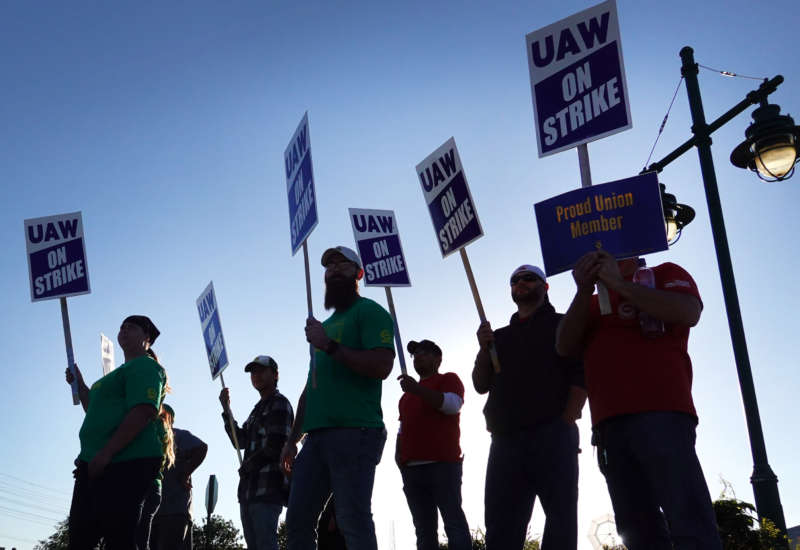New polling finds that a majority of likely voters across parties are supportive of recent major labor actions as a strike wave sweeps the U.S. and the labor movement shows signs of a resurgence amid the pandemic.
The survey, conducted by Data for Progress on behalf of the American Federation of Labor and Congress of Industrial Organizations (AFL-CIO), asked nearly 1,300 respondents if they approve or disapprove of workers striking for better wages. The one-question survey references the John Deere, Nabisco and Kellogg strikes.
Among all respondents, 74 percent of likely voters say that they either strongly or somewhat approve the strikes, with only 20 percent disapproving — a 54-point margin. Support was strongest among Democrats, where 87 percent of respondents said they approved of the strikes. Still, a majority of Republicans also approved, with 60 percent saying as such and only 30 percent disapproving of strikes.
The survey results suggest that Americans are largely supportive of the current moment in the labor movement, colloquially known as Striketober, as more workers grow tired of working in poor conditions with little pay and few benefits.
This month, over 10,000 union workers for manufacturing company John Deere began striking, objecting to being forced to work long hours as demand for the company’s products soared during the pandemic. The union workers have also rejected proposals to create a tiered system that offers fewer benefits to workers who are newer to the company.
The John Deere workers joined over 90,000 other workers from various industries like health care, food manufacturing and film who voted to authorize a strike recently. Earlier this year, Nabisco workers kicked off a wave of major strikes in the U.S., with hundreds of workers drawing on “the radical energies of a recently resurgent labor movement in the United States — a momentous upswell in a key vector of working-class power,” wrote Tyler Walicek for Truthout.
The labor movement revival is happening against a backdrop of skyrocketing wealth inequality exacerbated by a deadly pandemic that has killed over 700,000 people and counting. In August, as COVID surged due to the Delta variant, and as labor was criticized for being unwilling to work for stagnant and low wages, workers quit their jobs in record numbers. The number of resignations surged to 4.3 million in August — the highest since agencies began recording data on quits in 2000.
The data suggested something that economists and labor advocates have been indicating in recent years: The U.S. is ripe for a major transformation in how workers are treated and compensated, which has been highlighted by the pandemic.
“For the past two years, coronavirus placed the importance of our nation’s workers at the forefront of voters’ minds,” Ethan Winter, Senior Polling Analyst at Data for Progress, told Truthout. “As workers flex their power, our polling shows that Americans across the political spectrum by and large support their fight for better working conditions and pay, a critical indicator of the power of the labor movement heading into 2022.”


